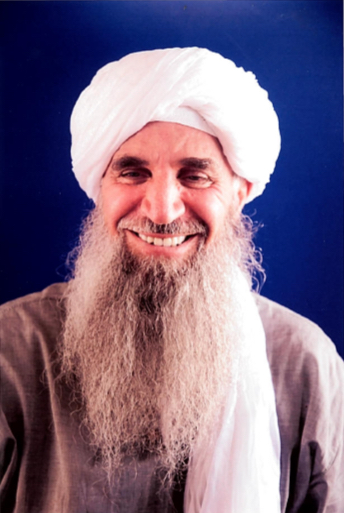Nashwan al-Tamir: Guantánamo’s Oldest and Most Disabled Prisoner


Background:
Nashwan al-Tamir (aka AbdulHadi al Iraqi) is a dual Afghan and Iraqi citizen born in Mosul, Iraq, where he grew up in a respected and religious family. In 1979, he was forcefully enrolled in the Iraqi army and was forced to serve in the Iraqi military during the Iran-Iraq war. Due to his refusal to join the Ba’ath party as a young man, Nashwan came under the radar of Saddam Hussein’s police state, leading to a life of persecution and harassment.
This culminated with his refusal to be drafted into the army a second time when Saddam decided to invade Kuwait. Now a conscientious objector, he was hunted down by security forces who sought his arrest, leaving him no choice but to escape the country.
Settling in Afghanistan:
Nashwan first moved to Jordan where thousands of other Iraqis were living and struggling to make ends meet. Motivated by the then popular call to fight the Soviet Union, he travelled to Afghanistan where fighters were recruited to fight communism. In 1997, he married an Afghan woman with whom he had 4 children, learnt Dari and became an Afghan citizen.
By then, the Islamic Emirate of Afghanistan was controlling most of the country, and was fighting the Northern Alliance. Due to his military experience, he became a field commander assisting in the fight to unify the country.
When the US invaded Afghanistan, he witnessed the horrors of carpet-bombings and decided to join the resistance, leading his men in several operations to protect his adopted homeland.
Capture & Rendition:
In 2006, Nashwan left the country with his wife and children to seek medical attention in Turkey for a nascent back condition. There, he was arrested in Turkey and subsequently handed over to the CIA. He was subjected to secret detention and torture at CIA black sites before being transferred to Guantánamo Bay in 2007.
Torture & Conditions of Detention:
Nashwan has reported enduring torture whilst in CIA custody, including prolonged isolation, stress positions, and other forms of physical and psychological abuse. This included being stripped naked, being roughly shaved, forced-fed, and placed in a sound-proof cell for six months, and worse. Most of the torture he endured remains classified. In Guantánamo, he has been subjected to harsh detention conditions, inadequate medical care, and punitive measures.
Medical Condition & Neglect:
Nashwan suffers from severe degenerative spinal disease. Although he was diagnosed with spinal stenosis in 2010, he did not undergo surgery until 2017, by which time he was experiencing partial paralysis, loss of bladder control, and chronic pain. Between 2017 and 2018, he underwent five spinal surgeries, but his condition remains critical. He is now severely disabled, reliant on a wheelchair and walker, and requires round the clock medical care. Despite this, his harsh treatment at Guantánamo and medical neglect have exacerbated his suffering.
Military commissions & Guilty Plea:
In 2022, after years of detention, Nashwan pleaded guilty before a Guantánamo military commission, often described as a “Kangaroo court”, to charges related to being a field commander fighting the US forces in Afghanistan. According to the plea agreement, he was due to be transferred to a third country within a year.
Secret plans for transfer to Iraq
In early 2025, reports emerged that the U.S. had secretly planned to transfer Nashwan al-Tamir (Abd al-Hadi al-Iraqi) from Guantánamo to an Iraqi prison, the country he was persecuted in and forced to flee, in breach of the plea agreement and the well-established principle of “non-refoulement”. Iraq has a well-documented history of torture, forced confessions, and executions following unfair trials. Nashwan has refused the transfer and his lawyers have filed a lawsuit to block the move, citing risks of mistreatment, possible execution, and inadequate medical care. The case is due to be heard on the 10th of January 2025 in order to stop this transfer.
Call to Action
Take action today, and write to the Judge who will be hearing Nashwan’s application to stop his transfer to an Iraqi prison.
Download Files








